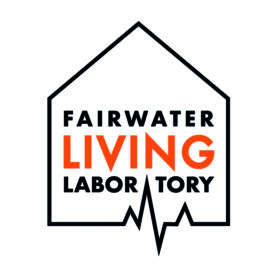
Testing the commercial viability, as well as the energy consumption, emissions, cost of living and urban heat island impacts, of the use of renewable thermal energy heat pumps in Australia.

With active household participation in surveys
Capturing data about energy, water, indoor and outdoor conditions and gas – learning useful information about energy use
Delivered to ARENA, generating insights on the change in energy use
Now completed, the Fairwater Living Laboratory project assessed the performance of renewable thermal energy heat pumps in the Australian context. The key outcomes investigated by research teams from University of Technology Sydney (UTS) and Curtin University were:
In Australia, residential buildings are responsible for approximately 12% of overall emissions. Heat stress causes adverse health impacts, discomfort, and household economic pressure through higher energy costs for cooling.
With rising temperatures rise due to the effects of climate change, “urban heat island effect,” and is a major threat facing medium- high- density housing developments. As our cities grow, it is increasingly urgent to explore strategies for cooling, including vegetation, bodies of water, shading, and energy.
Ground-source heat pump technology can halve heating, cooling and hot water loads compared to air-source heat exchange, with proportional carbon savings. They have the biggest demand reduction on the hottest and coldest days of the years, which provides a significant reduction in peak demand as well as total electricity consumption, dramatically lowering electricity costs for the residents. However, upfront capital cost and a lack of industry experience with the technology is a barrier to their widespread uptake in new housing developments in Australia.
Now completed, the Fairwater Living Laboratory project assessed the performance of renewable thermal energy heat pumps in the Australian context. The key outcomes investigated by research teams from University of Technology Sydney (UTS) and Curtin University were:
Implications for Networks
UTS findings | Curtin University findings
Implications for the Property Sector
UTS findings
Implications for Customers/Community
UTS findings | Curtin University findings
Implications for Supply Chains
UTS findings
For more information about the Fairwater Living Lab project, research and methodology, please don’t hesitate to reach out.

As Director of Strategic Projects, Belinda brings her global experience in accounting, marketing, strategy and innovation for financial services to develop strategies to build greater resilience for Climate-KIC Australia.